As you rev up your motorcycle and hit the road, you can feel the wind on your face and the power of the engine beneath you. But there’s something working behind the scenes to keep your ride smooth: the air filter. Think of it like the lungs of your bike, helping to keep it running well by filtering out dirt and other stuff from the air it breathes.
So, you might be wondering, “How often do I need to change my motorcycle’s air filter?” It’s a question lots of riders ask, and it’s important because a clean air filter helps your bike run better.
In this article, we’ll delve into the world of motorcycle air filters, exploring the key factors influencing replacement frequency and providing valuable tips to ensure your bike breathes easily. We’ll cover:
- The importance of air filters: Why they’re vital for your engine’s health and performance.
- Signs that your air filter needs attention: How to spot the telltale signs of a dirty or clogged filter.
- Factors affecting replacement intervals: We’ll explore how riding conditions, filter type, and even your own riding style can influence how often you need to change your air filter.
- Cleaning vs. replacing: We’ll discuss the pros and cons of cleaning a reusable air filter versus replacing it with a brand new one.
- Pro tips for maintaining your air filter: We’ll share some handy tips to help you get the most out of your air filter and keep your motorcycle running at its best.
By the end of this article, you’ll be a motorcycle air filter expert, equipped with the knowledge and tools to ensure your bike breathes clean and performs strong!
What are Air Filters?
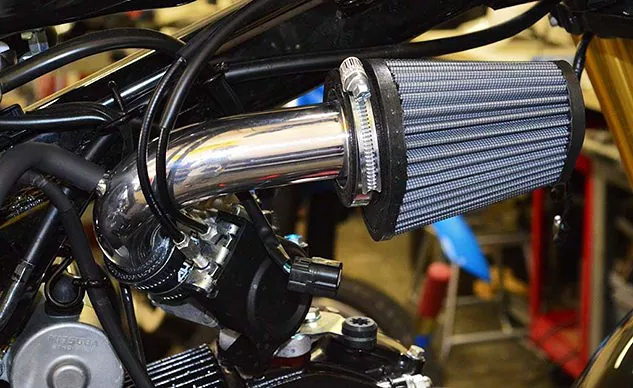
Air filters for motorcycles are essential components that prevent dirt, dust, and debris from entering the engine’s combustion chamber. They ensure that only clean air flows into the engine, which is crucial for optimal performance and longevity. Motorcycle air filters come in various types, including paper, foam, and reusable fabric filters. Regular maintenance and replacement of air filters are necessary to maintain engine efficiency and prevent damage from contaminants.
Why Air Filters are Important?
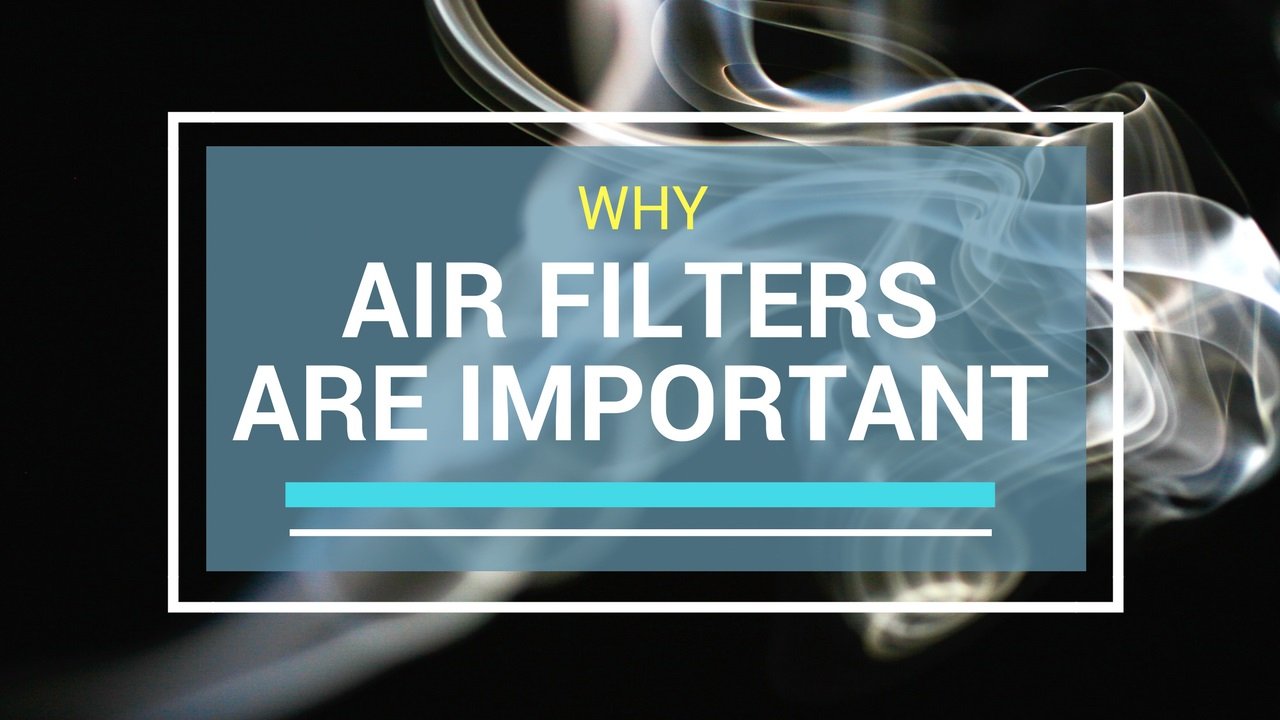
Air filters are crucial for motorcycles for several reasons:
- Engine Protection: Air filters prevent dust, dirt, and debris from entering the engine’s combustion chamber. Without a proper filter, these particles can cause damage to engine components, leading to reduced performance and potentially costly repairs.
- Optimal Performance: Clean air is essential for the combustion process in the engine. A clogged or dirty air filter can restrict airflow, resulting in poor engine performance, reduced power output, and decreased fuel efficiency. A clean air filter ensures that the engine receives the proper amount of air for efficient combustion.
- Longevity: By keeping harmful contaminants out of the engine, air filters help prolong the lifespan of critical engine components such as pistons, cylinders, and valves. Regularly replacing or cleaning the air filter can contribute to the overall longevity of the motorcycle.
- Fuel Efficiency: When the engine receives clean air, it can operate more efficiently, leading to better fuel economy. A clean air filter ensures that the engine burns fuel more effectively, helping to maximize mileage and reduce emissions.
- Reduced Maintenance Costs: Proper maintenance of the air filter can help prevent larger issues down the road. By investing in regular air filter replacement or cleaning, motorcycle owners can avoid costly repairs and keep their bikes running smoothly.
In summary, air filters play a vital role in protecting the engine, optimizing performance, extending longevity, improving fuel efficiency, and reducing maintenance costs for motorcycles.
Signs that You Should Change Your Air Filter
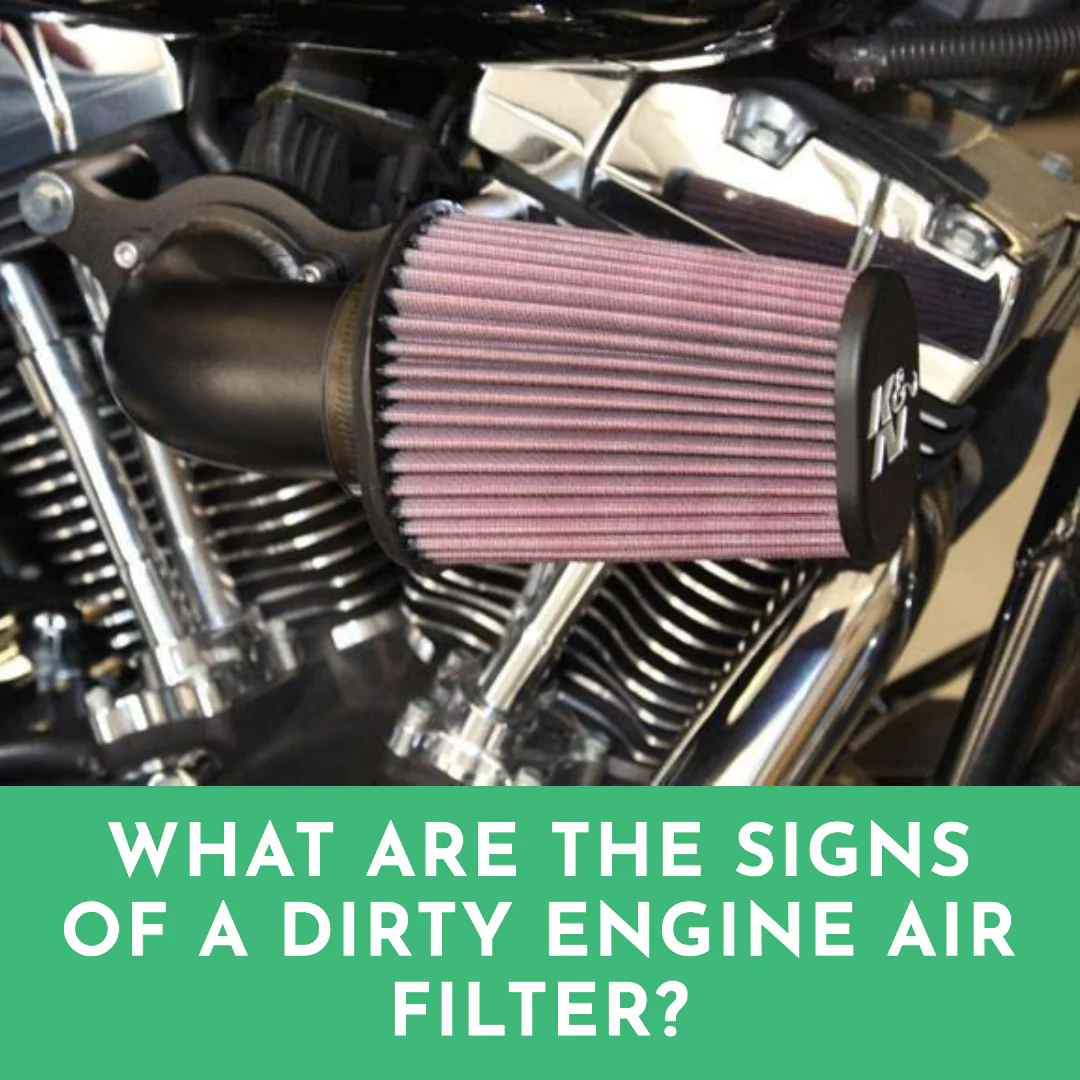
Several signs indicate that it’s time to change your motorcycle’s air filter:
- Decreased Performance: If you notice a decrease in your motorcycle’s performance, such as reduced acceleration, sluggishness, or difficulty maintaining speed, it could be a sign that the air filter is clogged and restricting airflow to the engine.
- Decreased Fuel Efficiency: A dirty or clogged air filter can cause the engine to work harder to draw in air, leading to increased fuel consumption. If you find yourself refueling more frequently than usual or notice a sudden drop in fuel efficiency, it may be time to check and replace the air filter.
- Visible Dirt and Debris: Inspect the air filter visually. If you notice visible dirt, dust, or debris accumulated on the filter, it’s a clear indication that it needs to be replaced or cleaned.
- Black Smoke from Exhaust: A clogged air filter can disrupt the air-fuel mixture, leading to incomplete combustion and the production of black smoke from the exhaust. If you see excessive smoke coming from your motorcycle’s exhaust, it’s a sign that the air filter may be dirty or clogged.
- Unusual Engine Sounds: A dirty or clogged air filter can affect engine airflow, leading to abnormal engine sounds such as popping, wheezing, or a noticeable increase in engine noise. If you hear any unusual sounds coming from your motorcycle’s engine, it’s worth checking the air filter as part of your troubleshooting process.
- Check Engine Light: In some cases, a clogged air filter can trigger the check engine light on your motorcycle’s dashboard. If the check engine light illuminates, it’s essential to diagnose the issue promptly, which may include inspecting and replacing the air filter if necessary.
How Often You Need To Change Your Motorcycle’s Air Filter?
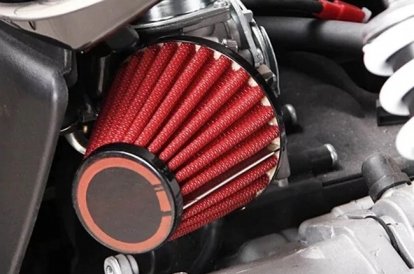
Several factors can influence how often you need to change your motorcycle’s air filter:
Riding Conditions:
If you frequently ride in dusty or dirty environments, such as off-road trails or construction sites, your air filter may get clogged more quickly. Similarly, riding in wet or muddy conditions can also impact the filter’s lifespan, as moisture can affect its effectiveness.
Filter Type:
Different types of air filters have varying lifespans. Disposable paper filters typically need to be replaced more frequently than reusable foam or fabric filters. Foam filters can often be cleaned and re-oiled, extending their lifespan compared to disposable options.
Riding Style:
Aggressive riding styles, such as high-speed riding or frequent acceleration and deceleration, can lead to increased engine airflow, which may result in more frequent air filter replacements. Similarly, if you often ride at high altitudes where the air is thinner, the engine may need to work harder to draw in air, potentially shortening the filter’s lifespan.
Maintenance:
Regular maintenance, such as cleaning and oiling reusable air filters or inspecting disposable filters for dirt and debris buildup, can extend the filter’s lifespan. Neglecting maintenance tasks can lead to premature filter failure and reduced engine performance.
Manufacturer Recommendations:
It’s essential to follow the manufacturer’s recommendations for air filter replacement intervals outlined in the motorcycle’s owner’s manual. These guidelines are based on factors such as the engine’s design, filter type, and expected operating conditions, providing a reliable reference for when to replace the filter.
By considering these factors and monitoring your motorcycle’s performance and air filter condition regularly, you can determine the appropriate replacement interval for your specific riding circumstances.
Cleaning vs. Replacing

Cleaning a reusable air filter versus replacing it with a brand new one each have their own set of pros and cons:
Cleaning a Reusable Air Filter:
Pros:
- Cost-Effective: Cleaning and reusing a filter can be more cost-effective in the long run compared to regularly purchasing disposable filters.
- Environmental Benefits: Reusable filters reduce waste by eliminating the need for disposable filters, making them environmentally friendly.
- Convenience: Cleaning a filter can typically be done at home with basic tools and cleaning solutions, saving time and hassle compared to purchasing and replacing disposable filters.
Cons:
- Time-Consuming: Cleaning a reusable filter can be more time-consuming than simply replacing a disposable one, as it requires removing the filter, cleaning it thoroughly, and allowing it to dry before reinstallation.
- Potential Damage: Improper cleaning techniques or harsh cleaning solutions can damage the filter material, reducing its effectiveness and lifespan.
- Limited Lifespan: Despite regular cleaning, reusable filters may eventually wear out and need to be replaced, especially if they become damaged or excessively clogged over time.
Replacing with a Brand New Air Filter:
Pros:
- Convenience: Replacing a disposable filter is quick and straightforward, requiring no cleaning or maintenance.
- No Risk of Damage: New filters are free from any potential damage or wear that may occur with reusable filters over time, ensuring optimal performance.
- Optimal Performance: A brand new filter provides maximum filtration efficiency, potentially improving engine performance and fuel efficiency.
Cons:
- Higher Cost: Purchasing disposable filters over time can add up to higher costs compared to investing in a reusable filter upfront.
- Environmental Impact: Disposable filters contribute to waste generation and may not be as environmentally friendly as reusable options.
- Dependency on Availability: Availability of replacement filters may vary depending on the specific make and model of the motorcycle, potentially causing inconvenience if replacements are not readily accessible.
Ultimately, the decision between cleaning a reusable air filter and replacing it with a new one depends on factors such as cost, convenience, environmental considerations, and personal preference. Regular maintenance and proper care are essential for maximizing the lifespan and performance of any air filter, regardless of whether it is reusable or disposable.
Pro Tips for Maintaining Your Air Filter
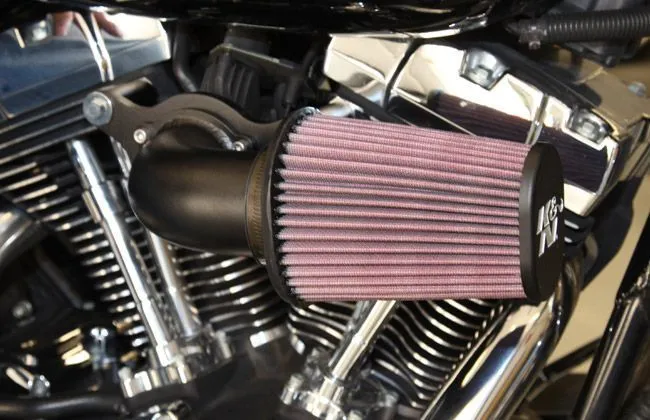
Here are some pro tips for maintaining your motorcycle’s air filter:
- Regular Inspection: Make it a habit to inspect your air filter regularly, ideally before each ride or during routine maintenance. Look for signs of dirt, dust, or debris buildup, as well as any damage to the filter material.
- Follow Manufacturer Guidelines: Refer to your motorcycle’s owner’s manual for specific maintenance recommendations provided by the manufacturer. This includes guidelines for cleaning, servicing, and replacing the air filter based on your bike’s make and model.
- Clean or Replace as Needed: Depending on your riding conditions and filter type, clean or replace the air filter as necessary. If you notice significant dirt buildup or a decrease in engine performance, it’s time to address the filter.
- Use Proper Cleaning Techniques: When cleaning a reusable air filter, follow the manufacturer’s instructions and use appropriate cleaning solutions. Avoid using harsh chemicals or high-pressure water, as these can damage the filter material.
- Allow Proper Drying Time: After cleaning a reusable air filter, ensure it is completely dry before reinstalling it in the motorcycle. Damp or wet filters can lead to poor engine performance and potential damage.
- Consider Pre-Filters: Pre-filters are additional layers of protection that can be added to your air filter to trap larger particles before they reach the main filter. This can help prolong the lifespan of your air filter and improve overall filtration efficiency.
- Inspect Seals and Housing: Check the seals and housing of the air filter assembly for any signs of damage or deterioration. Proper sealing is crucial to prevent unfiltered air from entering the engine.
- Keep Surrounding Area Clean: Maintain a clean environment around the air filter housing to prevent dirt and debris from entering the intake system. This includes regularly cleaning the area around the filter and ensuring the filter housing is free from contaminants.
- Replace Sealing Gaskets: If your air filter uses sealing gaskets or O-rings, inspect them regularly for wear and tear. Replace any damaged or worn gaskets to maintain proper sealing and prevent air leaks.
- Seek Professional Assistance if Needed: If you’re unsure about how to properly maintain or service your air filter, don’t hesitate to seek assistance from a qualified mechanic or motorcycle technician. They can provide expert guidance and ensure your air filter is properly cared for.
By following these pro tips for air filter maintenance, you can help ensure optimal engine performance, longevity, and reliability for your motorcycle.
Ensuring Your Motorcycle Breathes Easy: The Importance of Air Filter Maintenance
Maintaining your motorcycle’s air filter is essential for optimal engine performance, longevity, and reliability. By understanding the importance of air filters, recognizing signs of a dirty or clogged filter, and considering factors influencing replacement intervals, riders can keep their bikes running smoothly. Whether choosing between cleaning or replacing the filter, following manufacturer guidelines, or employing pro tips for maintenance, prioritizing air filter care is key. With regular inspection, proper cleaning techniques, and attention to surrounding components, riders can ensure their motorcycles breathe easy, maximizing performance and enjoyment on the road.
FAQs
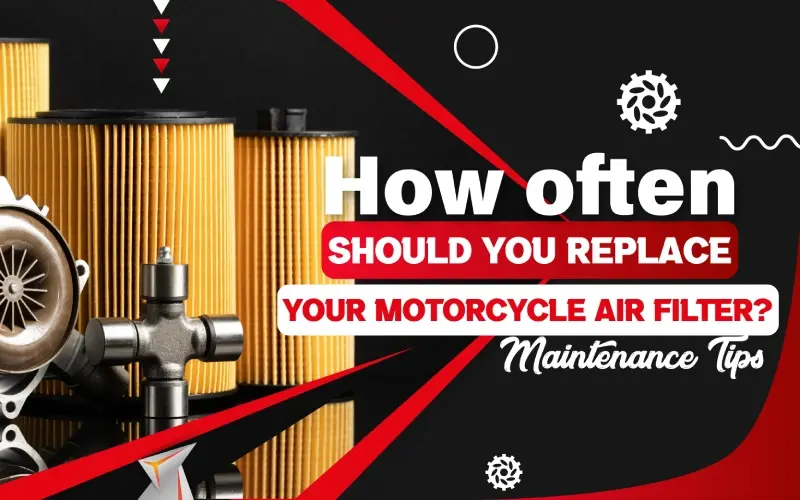
By Jenson Castillo






